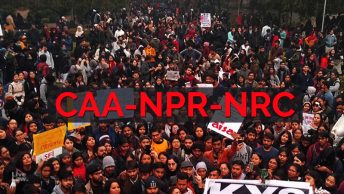This post by Rivka Weill is the second response in the international blog symposium on India and Global Decline in Democracies. In this post the author gives a Indian-Israeli perspective on the role...
We are hosting an international blog symposium on India and Global Decline in Democracies as a part of our New Scholarship initiative. This post is the first response piece by Professor Tom Daly.
Indian Journal of Constitutional Law, NALSAR releases Vol 9 (2020) | A Mélange of Scholarship on Indian and Comparative Constitutional Law Issues
[Ed Note: We are happy to report the release of IJCL’s Vol. 9 (2020). This Volume of the Journal seems quite promising with 11 pieces in the form of 7 Articles, 2 Essays and 2 Case Comments...
The Chair for Public and Comparative Law at Humboldt University Berlin (Prof. Dr. Philipp Dann) in collaboration with the journal VRÜ / WCL offers two short-term research scholarships for emerging...
A woman in Assam is determined not to be a citizen of India by the NRC. She seeks review by a Foreigners Tribunal. She faces a formidable task. She bears the burden of proving that she is a citizen...
The Citizenship Amendment Act alters the definition of ‘illegal immigrant’ for the purposes of the Citizenship Act 1955. It provides that ‘persons belonging to minority communities, namely, Hindus...
The Criminalization of PUBG in Gujarat: A Frivolous Affair?
In our latest piece, the author highlights the criminalization of PUBG in Gujarat with special focus on Section 37(3) of the Gujarat Police Act, 1951. The author discusses this in the light of the...
Life without Remission: An Irreviewable and Unconstitutional Punishment
In this piece, the authors look at the new trend in the Indian judicial system, of remitting death sentences to life sentences, but without the option of further remission under any circumstances.
“Rubber-band” Secularism: How Islamic and Hindu majoritarianism repurpose colonial legal governance
In the conclusive post of the round-table book discussion, Professor Julia Stephens writes a response to the reviews for “Governing Islam: Law, Empire and Secularism in South Asia”. While analyzing...
In this piece, the author analyses Julia Stephens’ book through the lens of theories of numerous thinkers. The author discusses the British perception of Mughal law, the philosophy driving the...









